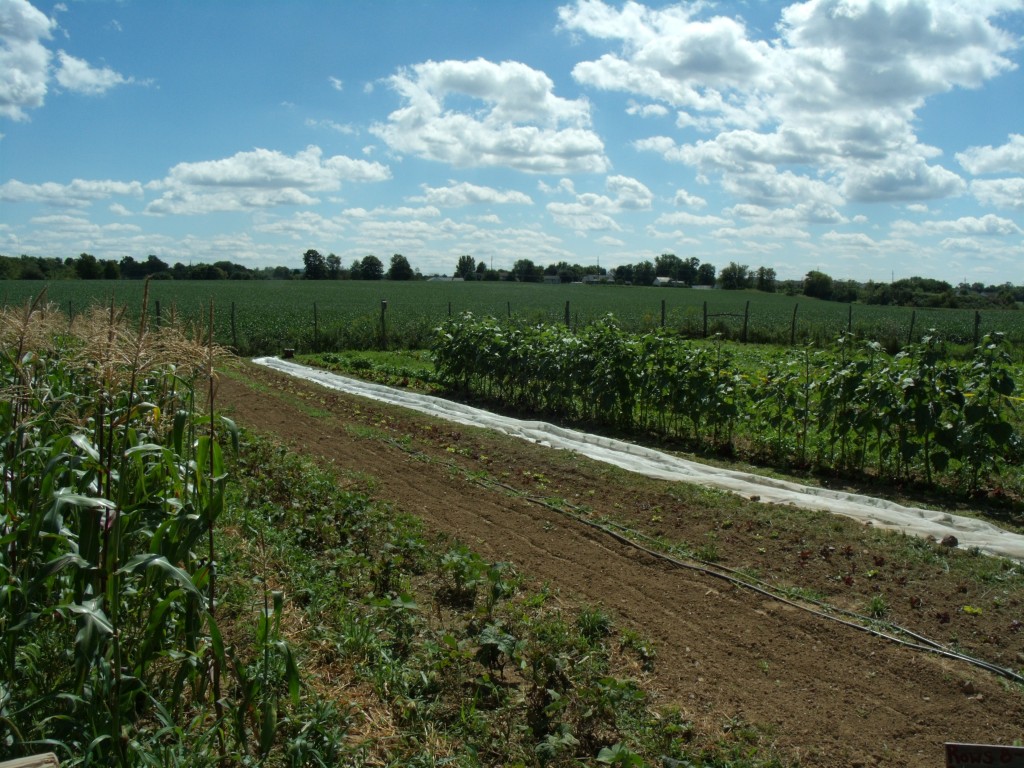As we close out the 2012 growing season, I’d like to take a chance to look back over the season and reflect.
In the student farm this year, we planted things earlier than ever before and started all our own seedlings. We had a lot of successes and a lot of learning experiences. This year we implemented a long term crop rotation plan including a continuous cover crop section. We used more insect controls than ever before and irrigated (by hose in hand) more than ever before.
Some of notably successful crops included sweet corn, beets, sunflowers, basil, lettuce, kale, and peppers, but most of our crops did fairly well.
Despite attempts to control cabbage worms, our broccoli and cauliflower did not fare well against them. Our tomato and pumpkin yields were also relatively small compared to past years.
We tried a new trellis system for our tomatoes and peas and it worked pretty well. We used fence stakes with three levels of wire between. This worked well, although required maintenance to keep the wire taut and we could have used more posts in between. Although the 5-ft posts cost around $5 a piece, they can be used year to year (unlike wood posts which can harbor disease). We also used an insect barrier, an organic method to reduce insect feeding with various amounts of success. We placed the mesh-like covering over plants right after seeding or transplanting and secured the edges. This gives the plant some time to get established without insect pressure. If the plant needs pollination, then it must be removed when the flowers arrive such as pumpkins, cucumbers, etc. This worked well for our squashes, pumpkins, and cucumbers to deter cucumber beetles, but the cabbage worms seemed to find there way under for the broccoli and cauliflower.
This year we are also focusing on planting cover crop to improve soil fertility. We are unable to use traditional fertility methods such as manure and compost (because of regulations according to Dining Services), so we are focusing on cover crops as one of our primary methods of fertilization. This year, we incorporated a cover crop section into our crop rotation. So, during the entire season, one section was planted in common buckwheat and then in the fall, the entire farm is planted in a fall cover crop. This year we are trying hairy vetch and rye mix. Although the hairy vetch does best when planted in late August to get established, the rye can be planted until mid-October or so.
We are still harvesting today: carrots, beets, pumpkins, winter squash, kale, radishes, etc., but things are winding down.
How did your crops do this year? What did you learn that worked and didn’t work for you?













